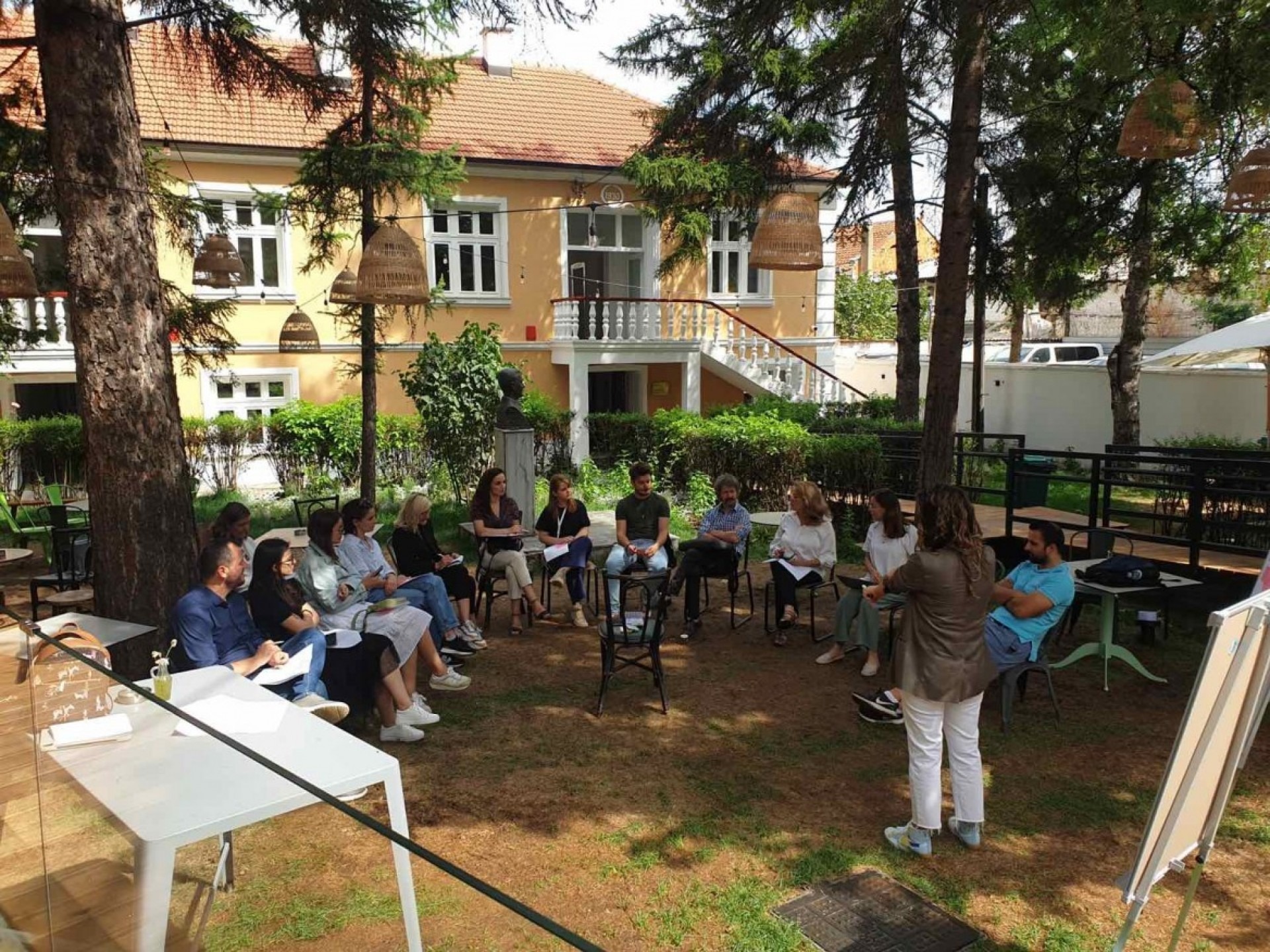Meeting with Pristina stakeholders to identify needs and collective solutions for the city
On August 24, a deliberative space took place in the capital of Kosovo as part of the UNDP's City Experiment Fund project. Waste management and traffic are among the most pressing challenges, according to local representatives.
UNDP Kosovo has convened different representatives of the civil society of Pristina (Kosovo), with the objective of helping to promote a more sustainable and friendly city for its inhabitants, always according to the identified needs along the listening process, and formulating alternatives collectively.
The main objective of the informal meeting led by UNDP Kosovo and organized around the City Experiment Fund project, is to discuss about the ecosystem mapping, align different points of view, around a common problem and identify spaces for action that will ultimately lead to solutions that benefit the community as a whole.

The identification of existing initiatives, complex problems and the generation of solutions are based on local narratives gathered though the social listening. Thus, in August 2022 a sensemaking session related to the ecosystem mapping is organized, with the participation of key agents in the development of today's Pristina. It was attended by representatives of the biennial festival Manifesta, EcoZ, the Public Housing Company of Pristina, the Directorates of Urbanism and Public Services, the Regional Water Company, as well as the presence of a cyclist, representing the Alpine Club of Pristina.
Starting from the key questions of the first listening iteration, they proceeded to identify and discuss together the biggest challenges and opportunities that the inhabitants of the Kosovar capital have to face in their daily lives.
Could you tell us what is happening in Prishtina?
It is clear that both waste management and the cleanliness of public spaces are areas in which the locals see great room for improvement; in this sense, the lack of urban furniture (mainly containers) to meet the needs of the population has been mentioned. This of course has different consequences such as "too narrow sidewalks" according to one of the participants. Complaint endorsed by another guest, "Construction waste after the construction of buildings is causing congestion in pedestrian traffic". For both challenges, it is suggested the creation of clearer regulations, but that will require in any case the civic attitude and commitment of the population.
There are also those who say that despite the construction of "good infrastructure works", some of them lack real use, precisely due to the lack of commitment or ignorance on the part of citizens. A good example of this is the low use of bike lanes, since it is common to see cars parked in them.
Another issue on which most agree, is "the lack of green spaces" due in large part, to the supremacy of traffic, or otherwise poorly designed green spaces. "Trees are not planted at the right time and there are also types of trees that should not be planted in Pristina because they do not grow in the atmospheric conditions of the city. These practices are not good and should be considered otherwise" concludes one of the representatives.
These imputs were helpful for the Sensemaking spaces that are taking place as part of the next stages of the process. The city of Prishtina, along with UNDP Kosovo is also taking part of the City Learning Circle, a prototype experience for Social Listening and Community engagement, where they will be sharing learnings with other cities from the region (Stepanavan, Armenia; Ivanov-Frankivsk & Kamianets-Podilskyi, Ukraine).
Currently, the process is in the second iteration of listening, collecting narratives in greater depth, and contrasting said information in spaces of collective interpretation where solutions are already beginning to be devised collaboratively among the participating agents.